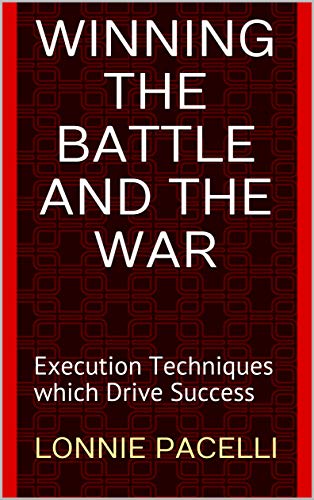
Some time back I was working with a leader who was having difficulty with his employees feeling empowered in their work. Ned (not his real name) was frustrated. "I don't understand it!" he stammered. "I assign tasks out, stay out of their way while they're completing the tasks, hold them accountable to dates, and praise them when the task is done well. I do all this yet my employees tell me I don't empower them. I'm ready to pull my hair out (ironically he was folically challenged)".
0 Comments

Some time back I did an interview on the importance of dinnertime. It reminded me of the importance of eating dinner as a family in the work/life balance equation so I thought I would post it here as well:
In your view, why aren't families sitting down to the dinner table like they did in the 1950s? Simple; families have allowed themselves to get so busy that they have come to accept that sitting down together for dinner isn't a necessity. It all starts with the parents; if they don't sit down together or enforce that the family will be eating together, the family won't do it. Make sitting down together the rule and not doing so the exception.  In the 2024 PMI Pulse of the Profession® report, the third of its three topics discusses enablers of greater project performance. Figure 15 on page 24 highlights the enablers, the percentage of organizations that support the enablers, and the project performance rate when those enablers are present. Now, I honestly have no issue with the enablers, nor do I hold any skepticism toward enabler/performance correlations, The bottom line is that enablers are simply there to help PMs be more successful, which is a good thing. My focus isn’t on the what and how, it’s on the why, when and who. Read more at ProjectManagement.com.
About a week later, the young man came into the store. “Excuse me, sir,” Jose said as he greeted the man. “We were reviewing some of our security footage and saw you stuff a ribeye into your backpack and leave without paying for it. We thought that, rather than get the authorities involved, we’d ask you about it. So if you’ll just pay for it, we’ll be good.”
The young man, unfazed, replied, “Well, I ate the ribeye and it’s gone, so why should I pay for it?” He abruptly left the store. Jose just stood there, at a loss for words at the twisted logic.
*** *** ***
You may be looking at this scenario wondering how the young man could possibly feel that he shouldn’t pay for the ribeye just because it no longer exists. He brought it home, prepared it, and enjoyed it. Jose and Linda lost money because of the young man’s actions. And to add insult to injury, the young man felt absolutely no remorse for stealing the ribeye. Sounds crazy, huh?
Yet, it’s precisely this logic, the ribeye alibi, people have used when I’ve caught them plagiarizing my articles. Dictionary.com defines plagiarism as “an act or instance of using or closely imitating the language and thoughts of another author without authorization and the representation of that author's work as one's own, as by not crediting the original author.” According to Grammarly.com, there are seven common types of plagiarism:
I wrote my first book, The Project Management Advisor, in 2004. Since then, I have written more than 50 books and more than 400 articles. Periodically, I run my articles through a plagiarism checker to see where else they show up and if I have been given proper attribution. Many times, someone will repost one of my articles and give me proper attribution. Provided proper attribution is given, I am completely cool with my article being reposted. But there are times when someone will either completely plagiarize my content or paraphrase it with no attribution whatsoever. Finding plagiarized content is one thing; getting action is a horse of a different color. I’ve experienced everything from having the content removed by the platform, to being reimbursed by the plagiarist, to having the plagiarist make a donation to my favorite charity, to being ignored, to hearing the ribeye alibi. Two instances of the ribeye alibi went as follows:
From a legal perspective, they worked, at least in their own interpretation, within the boundaries of the law. From an ethical perspective, they abandoned any sense of doing the right thing by claiming the ribeye alibi. They posted my content under their name (the shoplifter stole the ribeye), enjoyed the use of my content (the shoplifter ate the ribeye), then when they were caught (the shoplifter was recorded stealing the ribeye on camera), they claimed that because they took it down they weren’t required to do anything else (the shoplifter said he wasn’t in the wrong because the ribeye no longer existed). In this analogy, most rational-thinking people would say the owners of the grocery store deserve to be compensated for the stolen ribeye. So why shouldn’t I as the victim of plagiarism deserve to be compensated for the unauthorized and improperly cited use of my content? My intent is to dig deeper into the ribeye alibi and give you some practical nuggets on how to discover if you’ve been plagiarized and how to address plagiarism matters. I will also tell you five real-life stories about my being a victim of plagiarism. I will not be divulging entity names; they will only be known as RibCo, RightThingCo, Coward, RibGuy, and SorryDude. My experience and focus are on articles, blog posts, and other written content available on the Internet; I am not focused on other digital assets like music and pictures. Also, please keep in mind that I am presenting this from a business and ethical perspective and giving you some ideas to consider. You should consult with an intellectual property attorney before taking action on your own. See more about RibCo, RightThingCo, Coward, RibGuy, and SorryDude, and how you can fight plagiarism in The Ribeye Alibi: What I Learned as a Victim of Plagiarism. |
Topics
All
Reprints
Contact Lonnie about article reprints. Please specify article you wish to reprint. Backlist
See Lonnie's Amazon Author Page Archives
July 2024
|
Lonnie Pacelli - Building Thriving Leaders™
Insightful | Creative | Direct Advice to Help Leaders Help Themselves
Keynote Speaker | Board Director | Autism Advocate | Author | Project Management Expert | Microsoft/Accenture Veteran
See his books on Amazon
Insightful | Creative | Direct Advice to Help Leaders Help Themselves
Keynote Speaker | Board Director | Autism Advocate | Author | Project Management Expert | Microsoft/Accenture Veteran
See his books on Amazon
Services |
About
|
© COPYRIGHT 2019. ALL RIGHTS RESERVED.
We are a participant in the Amazon Services LLC Associates Program, an affiliate advertising program designed to provide a means for us to earn fees by linking to Amazon.com and affiliated sites.
|


 RSS Feed
RSS Feed